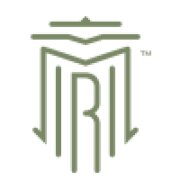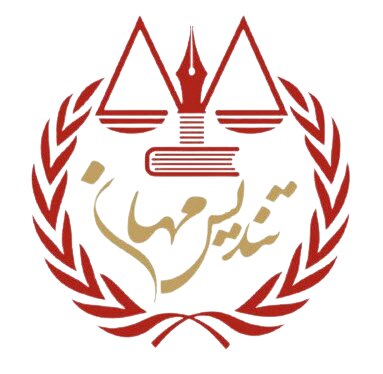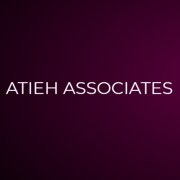Best Accounting & Auditing Lawyers in Tehran
Share your needs with us, get contacted by law firms.
Free. Takes 2 min.
List of the best lawyers in Tehran, Iran
About Accounting & Auditing Law in Tehran, Iran
Accounting and auditing are fundamental components of the financial and regulatory framework in Tehran, Iran. As in many other countries, these fields in Iran are guided by a mix of international standards and local regulations. The Iranian Association of Certified Public Accountants (IACPA) is a key regulatory body governing practices in the country, ensuring that financial reporting is accurate and complies with the relevant laws. With Iran's unique economic landscape, accounting and auditing practices are tailored to cater to the specific regulatory requirements and socio-economic conditions found within the country.
Why You May Need a Lawyer
There are several reasons why individuals or businesses in Tehran might require legal assistance in the field of accounting and auditing:
- If you're undergoing an audit by tax authorities and disputes arise, a lawyer can help negotiate and resolve conflicts.
- In cases of financial discrepancies or allegations of fraud, a lawyer can provide defense or mediation.
- Business mergers and acquisitions often require meticulous financial scrutiny, where legal guidance is invaluable to ensure compliance.
- If new regulations are introduced affecting financial reporting, a legal expert can help your business adapt to these changes.
- Legal assistance is beneficial for drafting and reviewing contracts and agreements with accounting firms.
Local Laws Overview
Tehran’s accounting and auditing practices are influenced by national regulations and international standards. The key legal framework includes:
- The Iranian Commercial Code, which outlines business entities' obligations in financial reporting.
- The Direct Taxation Code provides guidance on tax reporting and compliance, impacting how financial statements are audited.
- The role of IACPA in setting local standards in line with international accounting practices, ensuring transparency and uniformity.
- Regulations from the Securities and Exchange Organization (SEO) for publicly listed companies and their financial disclosures.
Frequently Asked Questions
What are the main regulatory bodies for accounting and auditing in Iran?
The Iranian Association of Certified Public Accountants (IACPA) and the Securities and Exchange Organization (SEO) are the primary regulatory bodies governing accounting and auditing practices in Iran.
Do international accounting standards apply in Tehran?
Yes, many global standards such as the International Financial Reporting Standards (IFRS) are integrated into local practices, especially for companies involved in international business.
What are the penalties for non-compliance with accounting regulations?
Penalties can range from fines, business operation suspensions, to criminal charges depending on the severity and nature of the non-compliance.
Can a lawyer represent my business during a tax audit?
Yes, a lawyer experienced in accounting and tax law can represent your business during a tax audit and can be instrumental in resolving any disputes.
How can I ensure my business complies with local accounting laws?
Regular consultations with legal and accounting professionals, keeping updated with changes in regulations, and conducting frequent audits are effective ways to ensure compliance.
Is forensic accounting used in auditing in Tehran?
Yes, forensic accounting is employed in cases of suspected fraud or financial discrepancies to provide detailed and clear financial analysis.
How does taxation affect financial reporting?
Taxation laws significantly impact financial reporting by dictating how revenues, expenses, and liabilities are recorded and reported in financial statements.
Are there specific accounting rules for foreign businesses in Iran?
Yes, foreign businesses must adhere to local regulations which can include specific reporting requirements in addition to global standards.
How often should my business conduct audits?
While annual audits are common, the frequency can depend on business size, industry, and specific regulatory requirements.
When should I consult a lawyer for accounting issues?
Early consultation is advised when significant changes in law occur, during audits, or when financial discrepancies are discovered to mitigate potential issues.
Additional Resources
For further assistance and resources, consider reaching out to:
- Iranian Association of Certified Public Accountants (IACPA): Provides guidance and standards for accounting practices.
- Securities and Exchange Organization (SEO): Offers insights on financial regulations for public entities.
- Iranian National Tax Administration: Essential for understanding tax obligations and changes in tax law.
Next Steps
If you need legal assistance in accounting and auditing, consider the following steps:
- Identify your specific legal needs and compile all relevant financial documents.
- Contact a lawyer with expertise in accounting and auditing law to discuss your situation.
- Consider consultations with multiple lawyers to compare their approaches and fee structures.
- Engage in regular communication with your legal advisor to stay updated on any ongoing legal matters.
Lawzana helps you find the best lawyers and law firms in Tehran through a curated and pre-screened list of qualified legal professionals. Our platform offers rankings and detailed profiles of attorneys and law firms, allowing you to compare based on practice areas, including Accounting & Auditing, experience, and client feedback.
Each profile includes a description of the firm's areas of practice, client reviews, team members and partners, year of establishment, spoken languages, office locations, contact information, social media presence, and any published articles or resources. Most firms on our platform speak English and are experienced in both local and international legal matters.
Get a quote from top-rated law firms in Tehran, Iran — quickly, securely, and without unnecessary hassle.
Disclaimer:
The information provided on this page is for general informational purposes only and does not constitute legal advice. While we strive to ensure the accuracy and relevance of the content, legal information may change over time, and interpretations of the law can vary. You should always consult with a qualified legal professional for advice specific to your situation.
We disclaim all liability for actions taken or not taken based on the content of this page. If you believe any information is incorrect or outdated, please contact us, and we will review and update it where appropriate.

















